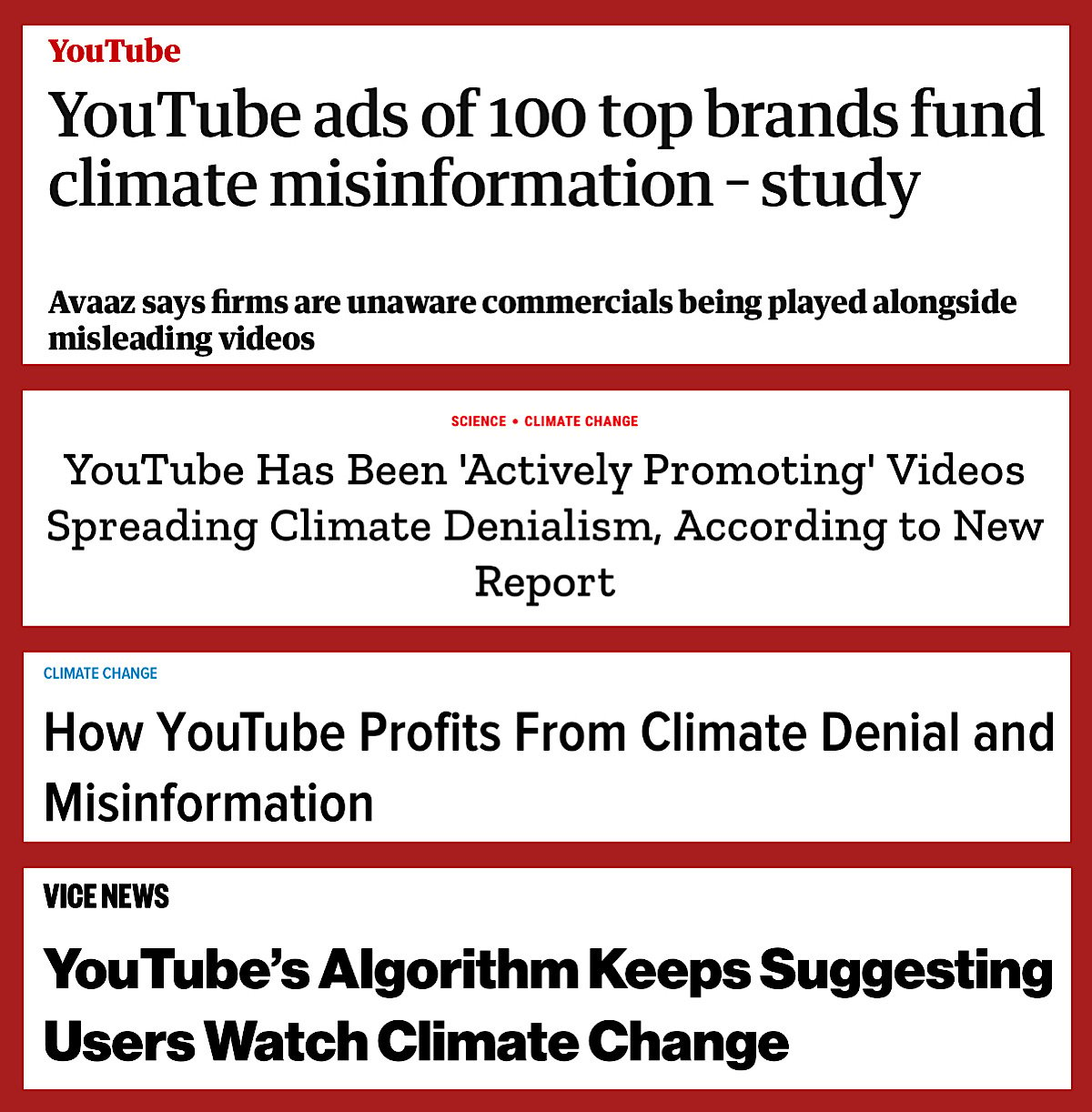Several legacy media outlets are using a flawed study from climate change activists to claim that YouTube ads and recommendations are promoting and funding “climate misinformation.” The group behind the study is also pushing for these videos to be suppressed and demonetized by YouTube.
The study comes from the non-profit Avaaz which has called for global action on climate change. It uses a YouTube developer tool that “presents videos that might be related to others.”
However, this tool “does not provide an exact replica of YouTube’s suggestions algorithm.” YouTube has added that this tool may be biased by factors such as embedding multiple videos side by side on a website.
“The study didn’t look directly at YouTube recommendations, so it’s not clear which videos are actually being promoted,” according to The Verge.
Even though the developer tool used by Avaaz doesn’t replicate YouTube’s recommendations and the study didn’t look directly at YouTube recommendations, it still claims that YouTube promotes “climate change misinformation” videos in its “Up Next” recommendations.
Some of the types of videos the study claims are pushing climate change misinformation include videos from Fox News and education platform PragerU – two outlets that argue that the climate change movement is used by political groups to grab more power and highlight that climate change manifestos often call for things that have nothing to do with the environment.
Avaaz also openly admits that it wants advertisers to pressure YouTube to stop promoting ads on what it deems to be climate misinformation.
To summarize:
- The study doesn’t look at direct YouTube recommendations but claims that YouTube recommends climate change misinformation
- The group behind the study are climate change activists
- These climate change activists claim that outlets which present fact-based arguments opposing the climate change movement are spreading misinformation
- These climate change activists admit they want YouTube to suppress and demonetize what they deem to be misinformation
Regardless, legacy media outlets covering the study have framed it as evidence of YouTube funding, profiting from, and promoting misinformation on climate change.

Evidence has shown that legacy media outlets were big benefactors of YouTube’s infamous January 2019 algorithm change which reduced the recommendations of what YouTube deems to be “borderline content and content that could misinform users in harmful ways.” Not only did these algorithm changes boost legacy media outlets but they also hurt independent YouTubers.
And YouTube already promotes “authoritative sources” (legacy media sources that YouTube classifies as trustworthy) when users search for information on climate change. Stats from YouTube have shown that these authoritative sources are 10x more likely to be recommended for some types of content.
These data points suggest that another algorithm change would further cement the dominance these authoritative sources already have when it comes to information on climate change and make it even harder for independent YouTubers to monetize and promote their content.






















